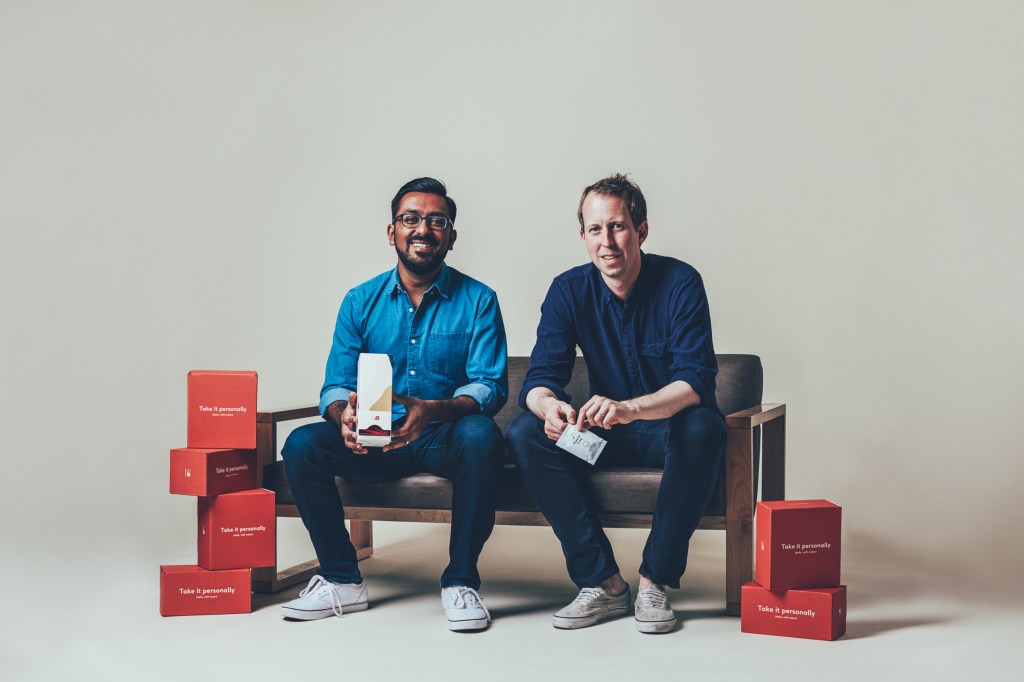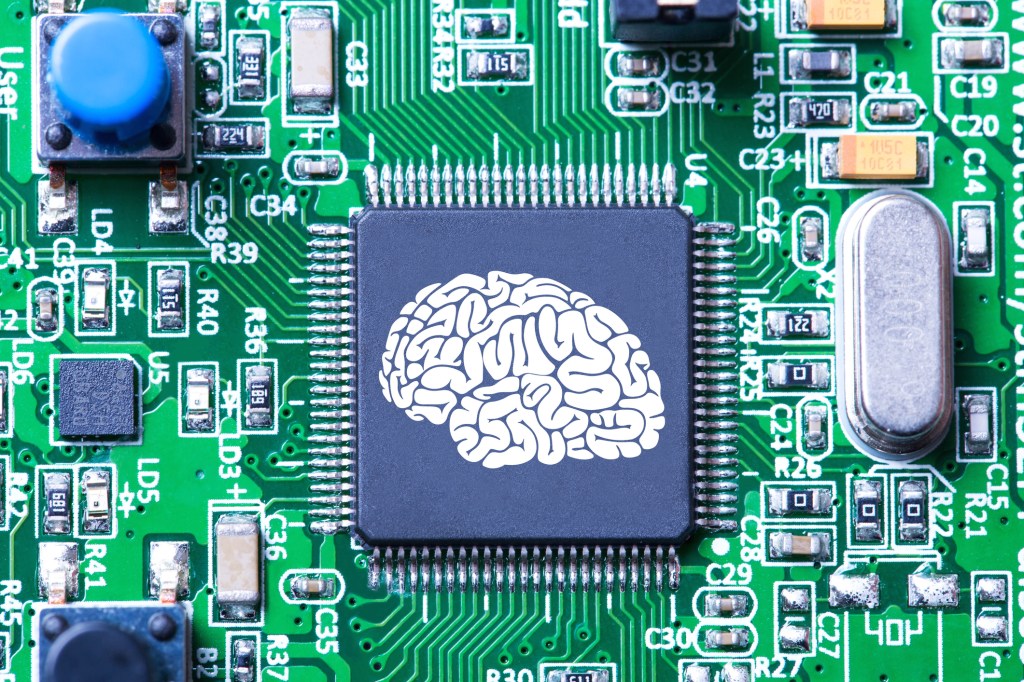At first, John Pasmore was excited about ChatGPT.
The serial founder had been in the artificial intelligence space since at least 2008. He recalled the days when experts declared it would take decades before the world saw anything like a ChatGPT. Fast-forward — that day has now come.
But there is a catch.
ChatGPT, one of the world’s most powerful artificial intelligence tools, struggles with cultural nuance. That’s quite annoying for a Black person like Pasmore. In fact, this oversight has evoked the ire of many Black people who already did not see themselves properly represented in the algorithms touted to one day save the world. The current ChatGPT offers answers that are too generalized for specific questions that cater to certain communities, as its training appears Eurocentric and Western in its bias. This is not unique — most AI models are not built with people of color in mind. But many Black founders are adamant not to be left behind.
Numerous Black-owned chatbots and ChatGPT versions have popped up in the past year to cater specifically to Black and brown communities, as Black founders, like Pasmore, seek to capitalize on OpenAI’s cultural slip.
“If you ask the model generally who are some of the most important artists in our culture, it will give you Leonardo da Vinci and Michelangelo,” Pasmore said of ChatGPT. “It’s not going to say anything about India or China, Africa, or even African Americans, because it has a bias that is focused on the European trajectory of history.”
So Pasmore launched Latimer.AI, a language model to give answers tailored to reflect the experiences of Black and brown people. Erin Reddick started ChatBlackGPT, a chatbot also centered on Black and brown communities. Globally there is the Canada-based Spark Plug, which is essentially a ChatGPT for Black and brown students. Africa is also seeing vast innovation in this space, with language models popping up to cater to the more than 2,000 languages and dialects spoken on the continent that Western AI models still overlook.
“We are the keepers of our own stories and experiences,” Tamar Huggins, the founder of Spark Plug, told TechCrunch. “We need to create systems and infrastructure, that we own and control, to ensure our data remains ours.”
Personalized AI is here
Generalized AI models cannot easily capture the African American experience because many aspects of that culture are not online. Current algorithms scrape the internet for sourcing, but many traditions and dialects within African American culture are passed down orally or firsthand, leaving a gap in what an AI model will understand about the community versus the nuance in what actually happens.
This is one reason why Pasmore tried to use sources like Amsterdam News, one of the oldest Black newspapers in the U.S., while building Latimer.AI, focusing on accuracy rather than training on user-generated data scraped from the internet. Doing this, he started to see differences between his model and ChatGPT’s.
He once asked ChatGPT about the Underground Railroad, the passage that enslaved Black Americans used to travel to Northern states to escape from slavery. ChatGPT’s model would mention runaway slaves, whereas Latimer.AI’s adjusted the wording, referring to the “enslaved” or “freedom-seeking people,” which is more in line with what has become more socially attuned while discussing the formerly enslaved.
“You have some subtle differences in the language that the model uses because of the training data, and the model itself just thinks about Black and brown people,” Pasmore said.
Meanwhile, Erin Reddick’s ChatBlackGPT is still in beta mode with plans to launch on Juneteenth. Her product works the way it sounds: a chatbot where one can ask questions and receive tailored responses about Black culture. “The core of what we’re doing is true community-driven,” she said.

She’s in the process of building out the tool, asking users what they want it to look like and how they want it to act. She’s also teaming up with education institutions like historically Black colleges and universities (HBCUs) to work with students to both teach and have them help train her algorithm. She said she wants to “make a well-rounded learning opportunity for Black and brown people to have a safe space to explore AI.”
“The algorithm prioritizes Black information sources so that it can speak to a body of knowledge that is more immediately relatable than your average experience,” she told TechCrunch, adding that, like Pasmore’s product, technically anyone can use it.
Tamar Huggins built Spark Plug to also offer a more tailored experience to Black and brown communities. Her platform translates educational material into African American Vernacular English (AAVE), the ethnolect associated with Black American communities. That dialect is traditionally passed down orally and firsthand rather than studied and written down like standard English, meaning the accuracy of an AI model (or person) learning it from just the internet will falter in precision. Capturing AAVE accurately is important, not just so the chatbot will respond using it, but also so students can more easily write prompts that will have the AI return the results they need.

“By creating content that resonates with Black students, we ensure they see themselves in education, which is critical for high engagement and academic success,” Huggins said. “When given the opportunity, Big Tech will almost always prioritize profits over people. So we created our own lane within the AI space.”
Huggins trained her algorithm on the writings of Black authors from the Harlem Renaissance, Black authors in education, and even the verbiage of her teenage daughter to capture the essence of AAVE. Huggins also works with educators, linguists, and cultural experts to review and validate Spark Plug’s outputs.
Pasmore is also working to expand his company into schools, especially HBCUs, as more students look to ChatGPT every day to complete their work.
“This is a better AI companion for a lot of the work Black and brown kids are tasked to do,” he said.
Uniting the diaspora
Africa is seeing itself overlooked in the current AI movement. For example, only 0.77% of the world’s total AI journals stem from sub-Saharan Africa, compared to East Asia and North America at 47.1% and 11.6%, respectively, according to a 2023 Artificial Intelligence Index Report. Population-wise, compared to North America, Africa constitutes around 17% of the world’s population, compared to just 7% of North America. When it’s time to pull information and experts about AI, the odds of research from sub-Saharan being used are quite low, which could impact the development of global AI tools.
While Africa is seeing a lot of development in creating more inclusive language models that better serve the Black diaspora, right now, current AI models from ChatGPT to Gemini cannot fully support the more than 2,000 languages spoken across Africa.
Yinka Iyinolakan created CDIAL.AI to address this. CDIAL.AI is a chatbot that can speak and understand nearly all of the African languages and dialects, with a particular focus on speech patterns rather than text.
Iyinolakan echoed to TechCrunch the same sentiment many Black Americans did — that foundational AI models are scraped primarily on internet data and from the most commonly spoken languages. Like its African American progeny culture, many African languages and traditions are absent from the internet, as it is a culture historically communicated orally rather than in written form. This means AI models do not have enough information on African cultures to train themselves, thus leaving a knowledge gap.

For CDIAL.AI, Iyinolakan brought in more than 1,200 native speakers and linguists across Africa to collect knowledge and insights to build what he hails “the world’s first multi-lingual voice-first large language model.” The company plans to expand in the next 12 months to include even more languages and build a model to support text, voices, and images.
He isn’t alone here. Google recently gave the Kenya-based Jacaranda Health a $1.4 million grant to build out its machine learning services so it can work in more African languages and Intron Health recently raised several million dollars to scale its clinical speech recognition for the over 200 accents spoken across Africa.
“Silicon Valley wants to believe that it is the be-all and end-all for artificial intelligence,” Iyinolakan said. “But to ‘get’ artificial intelligence, which is what all the companies have as their north star, they need to include a third of the world’s knowledge.”
Making headway
Taking on AI chatbots is not the only innovation Black founders are trying to tackle.
Steve Jones started the company pocstock to create stock images of people of color since, for decades, there has been a shortage of minorities represented in stock imaging. This is one reason why models today are spitting out mainly images of white people when users ask them to generate pictures of anything from doctors to pop singers.
“All platforms and tools should be trained from complete, racially inclusive, and culturally accurate data, or else we will [perpetuate] the bias issues that our larger society currently faces,” Jones told TechCrunch. To address this, pocstock has spent the past five years collecting diversity data and creating its own visual tagging system that contributes to a database businesses use to help train their AI models so it can produce more inclusive imaging.
Some improvements are happening, though. Jones said he’s noticed larger stock imaging companies that source to AI companies taking more strides in increasing the diversity of their content. Pasmore also sees a brighter future ahead, saying that personalized AI is the future anyway and that the more AI models interact with its users, the more it will understand a specific person’s wants and needs, “which, I think, eliminates a lot of bias.”
There might even be room for more cultural-specific AI models in the future, especially as more Black-owned alternatives keep popping up. After all, the world is vast and more nuanced — there is no purpose in trying to fit it in one black box.
“My hope is that more founders of color get involved in developing their own AI platforms or creating new AI-related jobs as early in this next economic boom as possible,” Jones said. “AI is going to create trillionaires, and I would love to see people of color take the position as producers and not just consumers.”
This article was updated to reflect what Spark Plug was trained from.






























Comment